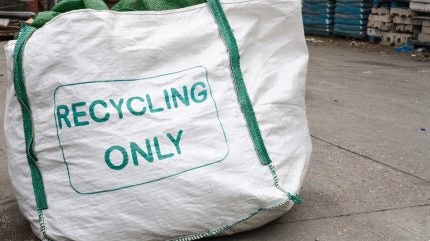
As sustainability continues to drive the business agenda, packaging producers face increasing responsibilities. In the UK, businesses involved in packaging must comply with regulations designed to reduce environmental impact, particularly through waste reduction and recycling.
These rules apply specifically to “obligated packaging producers,” who are required to register and meet recycling targets annually.
The goal is to ensure a significant reduction in packaging waste that ends up in landfills while promoting recycling efforts across the industry.
If your business handles packaging, it’s essential to determine whether you fall under this obligation.
Who is an obligated packaging producer?
In simple terms, an obligated packaging producer is any business or organisation that meets two criteria: it handles more than 50 tonnes of packaging materials in a calendar year and has a turnover exceeding £2 million.
This definition applies across a range of sectors, whether your company is involved in manufacturing, importing, or supplying packaged goods.
‘Handling’ encompasses various activities in the packaging lifecycle, such as manufacturing packaging materials, converting them into usable products, or placing goods into packaging for sale.
Even if your business doesn’t directly engage in these processes, you could still be obligated if you own the packaging or have it processed on your behalf.
For example, retailers who import packaged goods or supply final users with packaged products are also subject to these regulations.
This wide scope ensures that the entire packaging supply chain is responsible for reducing waste, with each player contributing to the UK’s broader environmental targets.
Meeting your recycling obligations
Once a business is classified as an obligated packaging producer, it must fulfil several obligations.
These include registering with the appropriate environmental regulator by 7 April each year, meeting recycling targets, and providing evidence of compliance by submitting a Certificate of Compliance (CoC) by 31 January the following year.
Recycling targets are set annually and vary depending on the type of packaging material. For instance, in 2023 and 2024, businesses are required to recycle 83% of paper, 82% of glass, and 61% of plastic.
Small packaging producers, defined as businesses with a turnover between £2 million and £5 million, can use the “allocation method” to calculate their recycling obligations, which simplifies the process by basing the requirement on turnover rather than the weight of packaging handled.
Producers can either join a compliance scheme, which will manage the registration and reporting process on their behalf, or they can register themselves.
Both options require the submission of detailed packaging data and supporting information. Failure to comply with these regulations can result in penalties, and businesses may face significant fines or legal action if they fail to meet their recycling responsibilities.
Changes in Extended Producer Responsibility (EPR)
As of 2023, businesses must prepare for changes brought about by the Extended Producer Responsibility (EPR) scheme for packaging.
EPR represents a shift in how recycling obligations are calculated and fulfilled, placing more responsibility on producers to manage the lifecycle of the packaging they handle.
Under EPR, obligated producers are required to collect accurate data on the packaging they handle, ensuring that recycling targets are met more effectively.
The EPR scheme reflects a growing international trend towards making businesses accountable for the environmental impact of the products they produce, sell, or distribute.
By forcing companies to consider the end-of-life stage of their packaging, the scheme aims to reduce waste and promote a more circular economy.
As part of the EPR transition, companies should reassess their packaging processes and ensure that they are tracking the necessary data from 1 January 2023 onwards.
This includes not just the type and amount of packaging used but also information about recycled materials, exports, and packaging waste management systems.
Staying compliant with UK packaging regulations
In order to navigate the complexities of UK packaging regulations, businesses should regularly review the latest guidelines from the government.
Resources such as the National Packaging Waste Database (NPWD) and compliance schemes provide invaluable support for companies looking to stay compliant.
Businesses must also ensure that they provide accurate data on packaging activities. This can include materials imported, packaging supplied to the final user, and packaging that has been recycled or exported.
Each piece of data helps regulators assess whether a company has met its obligations and whether its environmental impact is being effectively managed.
By staying on top of these requirements, obligated packaging producers can play a key role in supporting the UK’s ambitious recycling goals. They can also avoid potential fines or penalties associated with non-compliance.
More importantly, businesses that comply with these regulations can enhance their reputation, demonstrating their commitment to sustainability and environmental responsibility.
As regulations continue to evolve, especially with the introduction of EPR, companies must be proactive in meeting their obligations, staying informed, and adopting best practices for reducing packaging waste.
By doing so, they not only fulfil legal requirements but also contribute to a more sustainable future for all.
The takeaway
Obligated packaging producers in the UK play a crucial role in reducing packaging waste and promoting recycling.
With regulations becoming stricter under Extended Producer Responsibility, businesses must stay compliant, register on time, and meet recycling obligations.
This ensures they not only avoid penalties but also contribute to a sustainable and environmentally responsible business culture.



